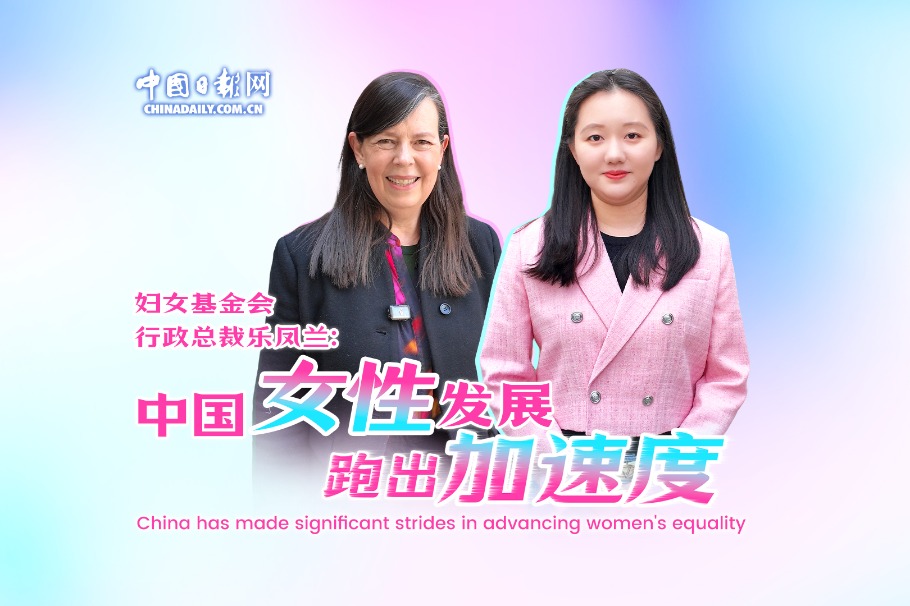In pursuit of autonomy


Rather than bowing to US pressure to decouple, EU should develop its own pragmatic approach to China
There are worries that Europe is becoming increasingly dependent on China for trade. China is an important partner of the European Union, not only in the fields of trade and investment but also politically. Relations between the EU and China have become more complex in recent years.
The United States is trying to exert pressure on its allies to stop China from becoming more technologically advanced than the US.However, this is doomed to fail as these countries will take their own bilateral economic interests into account.
The economies of EU member states and China are closely intertwined and interdependent. In the past 20 years, trade has increased eightfold. In 2021 the total amount of goods traded between China and Europe was about 696 billion euros ($755 billion), nearly 25 percent more than the year before. The EU is among the largest investors in China and responsible for many jobs as well as a source of knowhow and technology.
A united EU is important for China because the EU is China's major trading partner and a crucial market, now that the US view on China has become sharply negative. The EU is exporting only about half the amount it imports from China and some EU countries are more dependent on China than others. Measures have been taken by some countries at a national level to reduce their exposure and vulnerability.
Growing instability in the Middle East, Brexit, and increased strategic rivalry between the US and China during the last decade have threatened political and economic stability and caused some countries to take refuge in protectionism.
More recently the COVID-19 pandemic and the conflict in Ukraine have caused volatile energy prices and inflation, leading to serious disturbances in the global economy, disruptions in supply chains and social unrest.
All these factors have brought to light critical dependencies, as far as the EU is concerned, in particular with regard to certain rare earth metals and solar panels. Many components and manufactured goods exported by China are made using European high tech machinery and equipment.
Initiated by France, there have been many debates since 2010 among EU members about the bloc's dependency on China, in particular with reference to access to critical resources such as medical products, pharmaceuticals, rare earths and microprocessors, as well as to defence, energy, the space sector and digital sovereignty.
The EU is not alone in this: a number of major powers have been doing something similar, such as the US with "America First" and "Buy American" campaigns, and India with the "Make in India "strategy.
Likewise, the Chinese government has also identified strategic supply chains in its recent five-year plans and aims at becoming more self-sufficient and minimizing its external dependencies by way of its dual circulation paradigm and emphasis on State-led growth.
The EU has always been a supporter of free trade, but it is now also resorting to economic self-interest and protectionism. US industrial policies such as the Chips Act and the Inflation Reduction Act have also forced the EU to devise a "Europe First" policy.
A common response from Brussels was required to identify and minimize vulnerabilities and critical dependencies on China and other markets, draft relevant legislation and preserve national security.
In 2021, research was conducted by the European Commission to put strategic dependencies of the EU into 137 product categories. It showed that 52 percent of the import value was originating from China for 54 percent of the products.
The governments of some EU member states have already taken measures. However, it remains to be seen if consensus can be reached at the European level about a common strategy among all the 27 member states.
Next month the EU Commission will present the Critical Raw Materials Act which is aimed at more diversification of both imports and exports. This legislation must significantly increase and diversify the EU's critical raw materials supply, strengthen circularity and support research and innovation. Besides, it will define strategic priorities, risk management and monitoring, how to strengthen the value chain within the EU as well as equal treatment for non-EU countries.
More and more economies have adopted or are devising diversification policies by sourcing their imports from more than one country, if and when possible. First and foremost, diversification has to be initiated by companies.
Some enterprises based in China have revised their China strategy by becoming less dependent on one market and chosen to produce only for the local market and no longer for exports. It will not be easy to say goodbye to the lucrative China market and cheap supplier of many consumer products.
Both China and the EU are economically interdependent. The EU should have its own China strategy independent from the US and focus on acting as one bloc, developing a pragmatic approach to China, but not disengaging from this key market in the future. It should strive to have a more balanced relationship and diversify both its sourcing and export markets, thus reducing geopolitical tensions and commercial risks.
The author is vice-chairman of the Netherlands China Business Council. The author contributed this article to China Watch, a think tank powered by China Daily. The views do not necessarily reflect those of China Daily.
Contact the editor at editor@chinawatch.cn


































